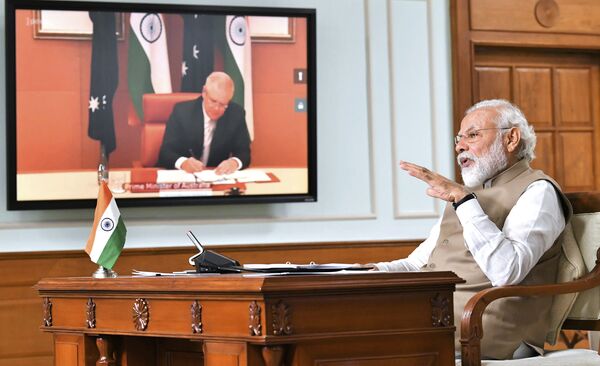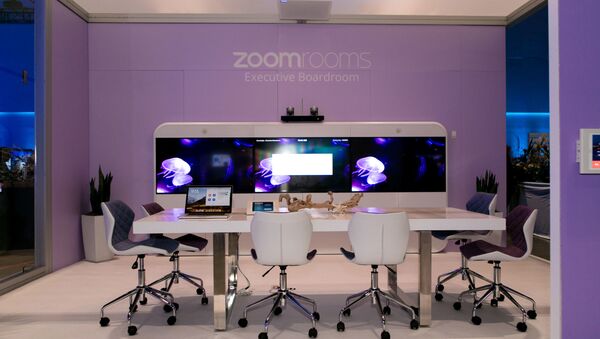Researchers have found that workers surveyed reported a sharp deterioration in their work relationships following an increase in videoconferencing amid the COVID pandemic. Looking at these findings in greater detail, we spoke to one of the authors behind this study, Nancy R. Buchan, an associate professor of international business at the University of South Carolina.
Sputnik: Can you tell us more about your research and the impact Zoom has had on relationship building among workers?
Nancy: We’ve been studying communication patterns and how people interact across cultures for about 15 years, and typically this has been done face to face, although more and more it’s been done virtually. With the pandemic, there was a radical shift to people having virtual meetings and virtual communications, so we wanted to study how would that influence these communication patterns, and then the things that flow out of that, the consequences from that, the relationship building, and then various team outcomes.

The [results] that we’re talking about were based on 324 working adults from the United States, and we contacted them mainly through Amazon MTurk, but also contacted various companies and things like that, but the bulk was through Amazon MTurk. We asked them a number of questions about their communication behaviours and then also about relationship building and then their perceived team outcomes. So, it was, how did they feel that their teams functioned online. Half of the questions concerned their interactions face to face, when they were able to meet in person, and then half when they had virtual meetings.
Sputnik: Why is good relationship building such an important skill amongst colleagues in a work environment?
Nancy: Relationship building leads to various team outcomes - we say it's a mediator.
So, without relationship building, you can't have this other stuff, it's the thing that functions in the middle, it's the catalyst. And so, we believe that our results show that it leads to various team outcomes, like how well the teams coordinate with one another, how efficiently they can do their tasks, how effectively they can do their tasks, that sort of thing.
Sputnik: Are there any areas in your research that you'd like to develop further, or perhaps still remain unanswered?
Nancy: We do want to do more of the cross-cultural studies, because we know that people differ in their propensities to be able to read nonverbal cues; to both send/transmit and understand nonverbal cues, which was one of the key factors that came out that led to relationship building. So, it was a path analysis, and it kind of started with the understanding of nonverbal cues, as well as intensive or very engaged listenings. When we're on Zoom conversations, it's so easy to look at our computer, to look at our phone, to really to zone out, and I think just our fatigue in these meetings of constantly looking at the screen, makes it very difficult to stay engaged.
We know that some people are what we call "high-context" communicators, and then there are "low-context". Low-context communicators say what they mean and mean what they say, and everything is contained in the words used. But for high-context communicators, it's more how they say it. Everything surrounding it - the tone, the pitch, the volume, the what we call paralinguistic signals, or the body language.
There are various cultures around the world that seem to manifest people who are more able, or just ready, to read those nonverbal cues and to stay engaged, because more is required of the listener, because the listener has to try to figure out what those nonverbal cues mean. So, we do want to do this research in a broader scale and really get an understanding of - are there different levels of effectiveness in these virtual meetings, maybe across different cultures, but also, more importantly, how can we bring people up to those various levels.




